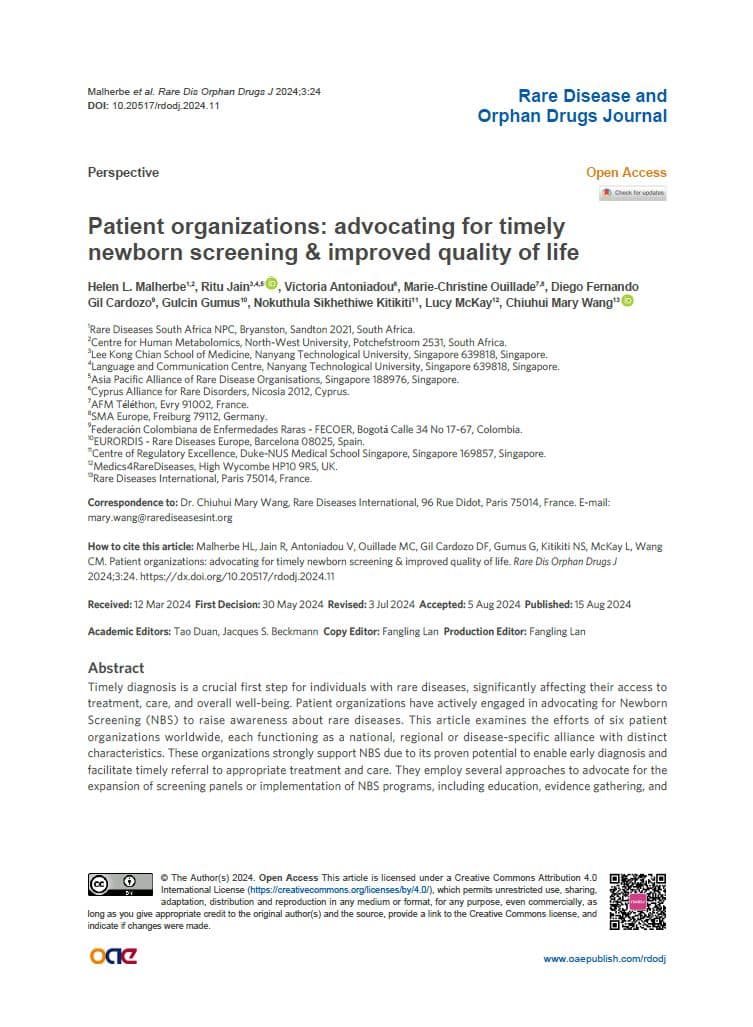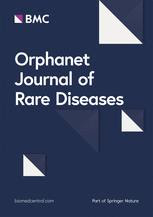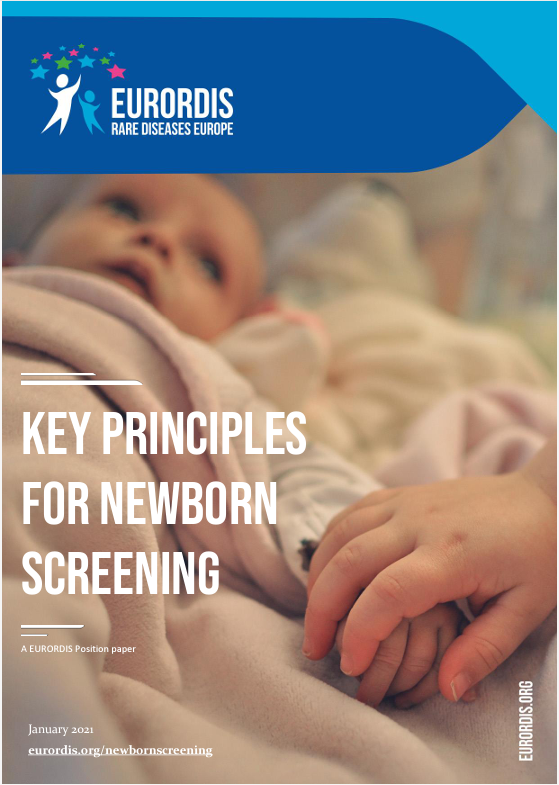
Newborn screening (NBS) is a comprehensive system that includes various elements such as testing the newborn, diagnosis, communication of information to parents, follow-up care and storage of samples for secondary use.
NBS is important to people living with a rare disease and their families because for approximately 70% of rare diseases the onset occurs during childhood, but for many diseases clinical signs of symptoms do not appear in the first days or months following birth.
Conditions that newborns are screened for in NBS programmes include some rare diseases where early intervention can prevent the onset of disease symptoms or delay disease progression, improving the quality of life of the newborn, deriving a benefit for the patients, their families and society.
Recent and continued scientific and technological advancements have opened up the discussion on the expansion of NBS programmes to include rare diseases that could be screened using new sequencing techniques.
Different countries have advanced at different rates on their NBS programmes. The number of conditions included in national newborn screening programmes varies per country. For example, newborn screening in Ireland includes 8 conditions, in UK 11 conditions, in Germany 17 conditions, in the Netherlands 22 conditions and in Italy 49 conditions.

11 Key principles for newborn screening
EURORDIS, alongside its Council of National Alliances, Council of European Federations and its members, have set out 11 Key Principles to support an harmonised European approach to Newborn Screening.
Advocating for harmonised criteria and adequate policies for newborn screening
Although in some Member States, the new and expanded NBS programmes include screening for a wider range of conditions, there is little agreement on which diseases should be included in national screening programmes.
Variations in the NBS practices developed in the 1960s among European countries highlight the need for collaboration and common uptake of NBS criteria for including new diseases in the newborn screening programmes across Member States. Having a uniformed approach among all Member States is of particular importance to improve the lives of babies born with a rare disease and their families.
EURORDIS advocates for the harmonisation of criteria and adequate policies for newborn screening in every EU Member State.
Last year, with input from the EURORDIS NBS Working Group and rare disease national alliances/ European Federations, we published a series of principles for harmonious uptake/adoption of NBS programmes across Member States with a view to delivering maximum benefit and improving outcomes for babies born with rare diseases.
In 2020, EURORDIS also held a EURORDIS Round Table of Companies workshop on NBS. Read the workshop concept paper to understand the Newborn Screening decision-making processes and gain insight about diverse national approaches.




